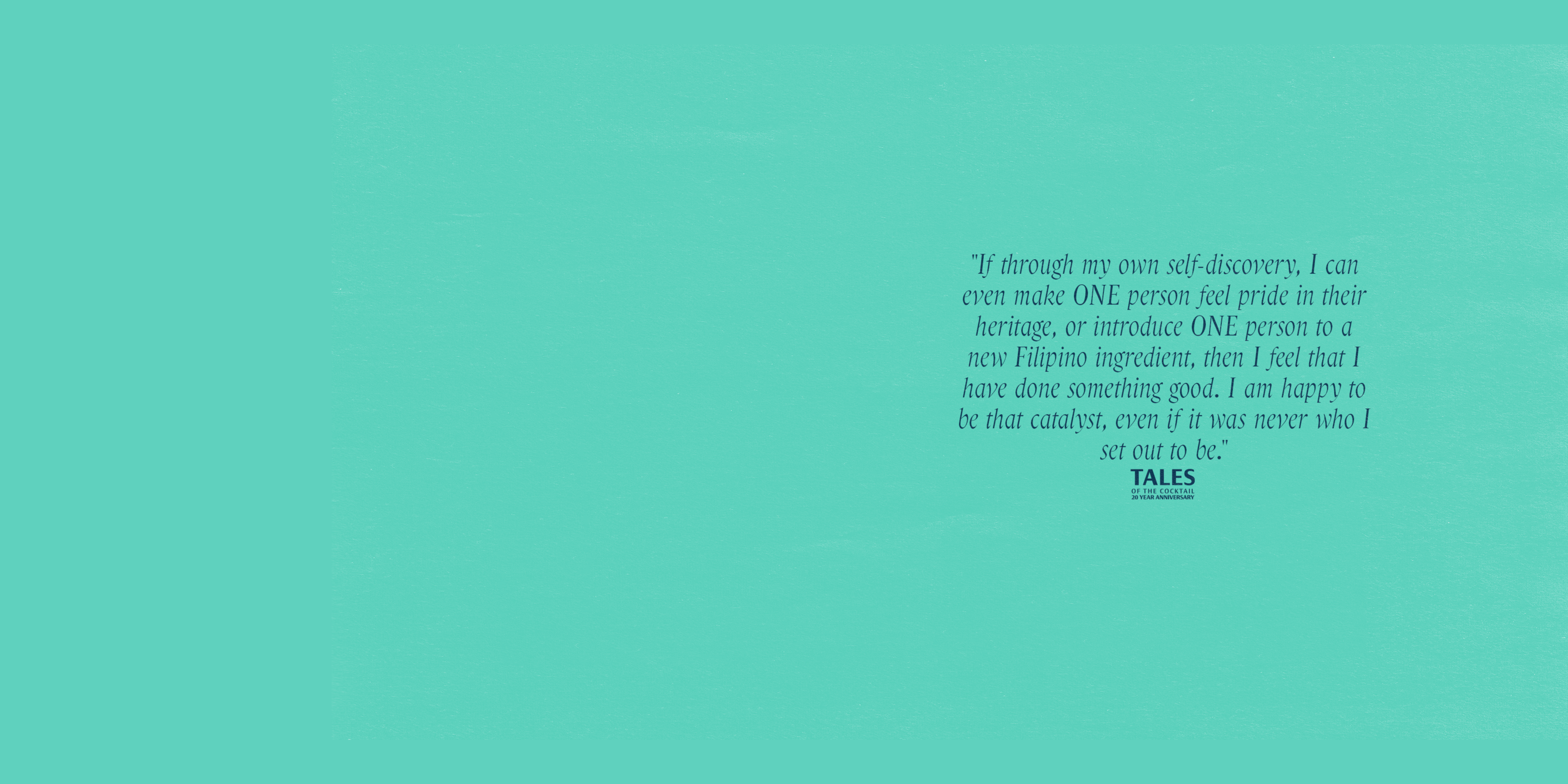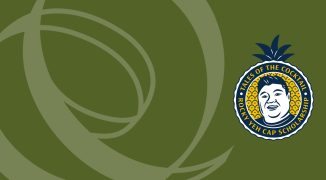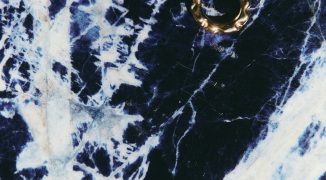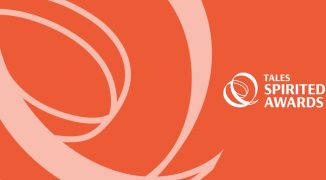If you take a look at me, there are some assumptions you can make. Judging by the color of my skin, you’d think I was Asian – probably South East Asian, Filipino, or maybe Thai. If you took a closer look at my bar menu, you’d notice a bunch of Asian ingredients; Pandan Calamansi. “Oh, he’s definitely Filipino,” you might say.
But for the people closest to me, know that I didn’t always identify as Filipino. Sure, I always knew I was Filipino. But growing up, as an adopted kid in Northern Virginia, I identified as White versus Asian. My parents are both Caucasian and so were most of my friends at that time. My appearance was what made me different from everyone else, and as a kid, the last thing you want is to be different from everyone else.
When people ask me, “Where are you from?”, my usual answer is “the East Coast – Northern Virginia.” It’s only after they push, do I realize they’re asking what my ethnicity is. The answer is Filipino, but it’s really not how I identify myself.
Discovering and getting comfortable with my Filipino side has been a journey, one I’ve been on for most of my life and will probably forever continue being on. There were times in my life when I tried to suppress it. As a kid, I tried so hard to fit in with the White kids I grew up with. But there’s no denying the color of your skin and your heritage. Other times, I tried to lean into it. I even explored joining the Filipino American student group in college. Ultimately, I didn’t fit in. I looked Filipino, but inside, it didn’t feel like I belonged.
I tried to connect with the Asian part of myself but realized it wasn’t so straightforward. I could learn about my culture, I could learn about the ingredients and eat the food, but a part of me would never fully fit in. My Asian friends would have cultural references that I could never understand or relate to. Things about Asian parents, growing up in Asian households, I never experienced. To top it off, I didn’t speak the language. These references never resonated with me so there will always be a disconnect no matter how warm and welcoming the community has been towards me.
As I got older, I made a lot of Korean and Japanese friends, and I started to discover another side of my Asian identity. After meeting my Japanese-Hawaiian wife, I learned about her heritage and grew to love and embrace other cultures. With every bit of new discovery, I’ve realized that I’ve adopted bits and pieces of many different cultures and become my very own little melting pot and will never fit neatly under one label.
The evolution of Pacific Cocktail Haven (PCH) has been parallel to my own journey of self-discovery. It evolved as I evolved, and it continues to evolve today. If through my own self-discovery, I can even make ONE person feel pride in their heritage, or introduce ONE person to a new Filipino ingredient, then I feel that I have done something good. I am happy to be that catalyst, even if it was never who I set out to be.
So much of what I have learned, I can attribute to Chef Francis Ang, a Filipino chef, who actually set out to educate people about Filipino culture. He has introduced me to so many different ingredients and helped me learn so much about my heritage. When Filipinos come into PCH, I often hear “thank you so much Kevin”. They are proud to be Filipino. Proud to see a Filipino bartender showcase Filipino ingredients in cocktails. Proud that their culture is getting the attention it so deserves. They tell me that PCH is their “safe haven”. While that was never my intention, I’m humbled and it brings me joy, and it inspires me to continue pushing the cause forward.
In the last few years, I’ve grown into a more mature bartender, and have really discovered my own cocktail style. Pacific Cocktail Haven (PCH), like the famous Pacific Coastal Highway, embodies that relaxed Californian hospitable ambiance that has also evolved. The hospitality is still there – it will forever be at the core of who I am and what I want to embody. But now, Pacific Rim ingredients are showcased. All of the cultures I’ve adopted throughout my life, finally have a place to be displayed and represented.
I never think of myself as a “Filipino bartender”. I think of myself as an incredibly driven, hardworking, and passionate bartender. I’ve always leaned on these character traits – traits that my parents have instilled in me. Any time I have ever experienced a failure, or an opportunity that didn’t pan out, it just fueled the fire within. It made me work harder. It was the motivation I needed to push myself to be even better than before. I believe that if you don’t have both drive and focus, you’re still just spinning your wheels.
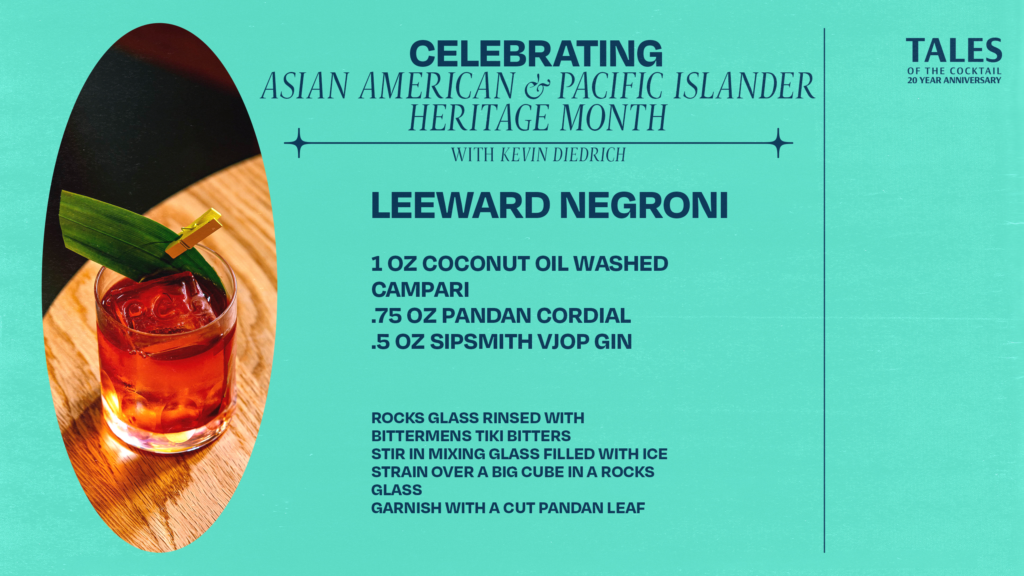
If you look more closely at my cocktails and look past the Filipino ingredients, you’d see something else. Lychee. Li-hing mui. Japanese curry. Salted black sesame. Mango. Coconut. Macadamia nuts. Thai tea. The reality is, that my menu is a melting pot of flavors that influenced me. I’m so much more than my Filipino heritage or white upbringing. I am a reflection of my adopted Korean brother, my Japanese-Hawaiian wife, and all of the friends, mentors, and people I have met throughout my life who have influenced me. They’re forever a part of my identity and will always be a part of my cocktail influences and inspirations.
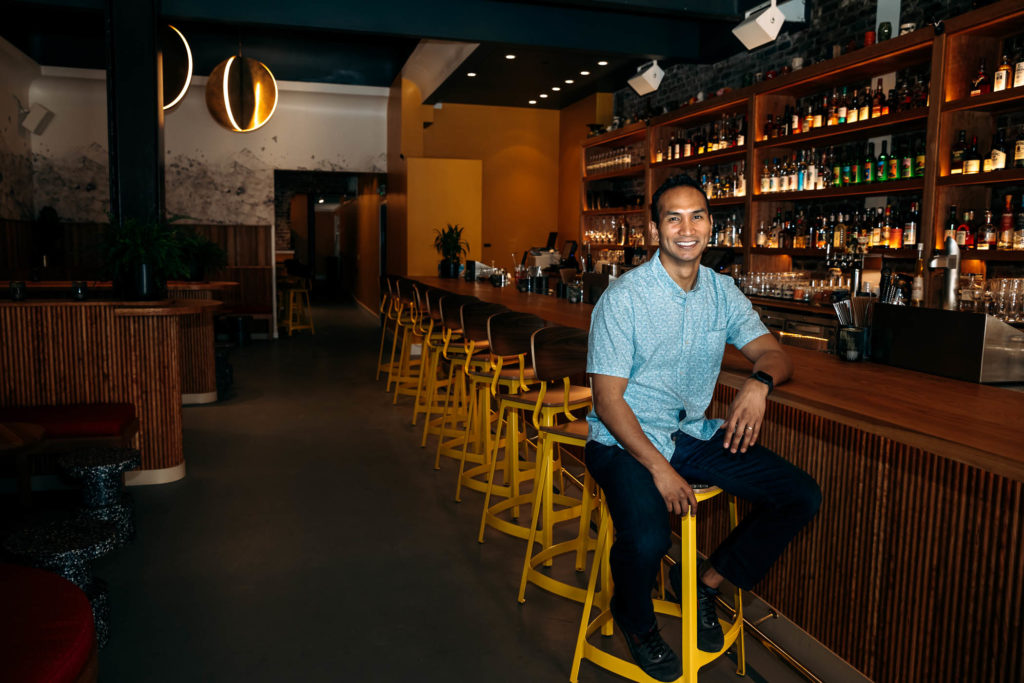
Award winning Owner, operator and bartender of Pacific Cocktail Haven (PCH) and Kona Street Market in San Francisco.


